
This resource describes the steps involved in writing a review of literature at the postsecondary level.
- Subject:
- Arts and Humanities
- Material Type:
- Lecture Notes
- Author:
- Tessa Troughton
- Date Added:
- 01/24/2023

This resource describes the steps involved in writing a review of literature at the postsecondary level.
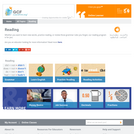
The GCFLearnFree.org Reading program is designed to: 1) Help adults at all levels become better readers and help non-native speakers improve their English vocabulary and reading comprehension. 2) Explore whole texts or focus on individual words in our video dictionary. and 3) Repeat an activity as often as you want, whenever you want, wherever you want.
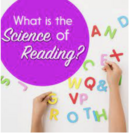
According to the Institute of Multi-Sensory Education (IMSE) the Science of Reading (SoR) is a comprehensive body of research that encompasses years of scientific knowledge, spans across many languages, and shares the contributions of experts from relevant disciplines such as education, special education, literacy, psychology, neurology, and more. , literacy, psychology, neurology, and more. This resource is intended to help teacher candidates begin to understand the Science of Reading and it's educational implications.

Reading Comprehension ActivitiesIn this lesson, students can practice their reading comprehension.
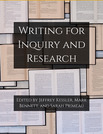
Writing for Inquiry and Research guides students through the composition process of writing a research paper. The book divides this process into four chapters that each focus on a genre connected to research writing: the annotated bibliography, proposal, literature review, and research essay. Each chapter provides significant guidance with reading, writing, and research strategies, along with significant examples and links to external resources. This book serves to help students and instructors with a writing-project-based approach, transforming the research process into an accessible series of smaller, more attainable steps for a semester-long course in research writing. Additional resources throughout the book, as well as in three appendices, allow for students and instructors to explore the many facets of the writing process together.
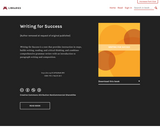
Writing for Success is a text that provides instruction in steps, builds writing, reading, and critical thinking, and combines comprehensive grammar review with an introduction to paragraph writing and composition. For questions about this textbook please contact textbookuse@umn.edu

How do you read a poem? Intuition is not the only answer. In this class, we will investigate some of the formal tools poets use—meter, sound, syntax, word-choice, and other properties of language—as well as exploring a range of approaches to reading poetry, from the old (memorization and reading out loud) to the new (digitally enabled visualization and annotation). We will use readings available online via the generosity of the Poetry Foundation and the Academy of American Poets. We will also think collectively about how to approach difficult poems.
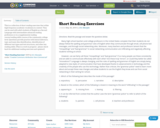
This is a collection of short reading exercises that utilize high frequency academic vocabulary in context. They can be used with adult students of English as a Second Language with intermediate-advanced reading proficiency or in a supplemental reading course/reading skills course at the community college level. Questions provide practice with lexical inference, topic and main idea identification, identification of different text types and text structures, and other key reading skills. (This is a work in progress - please check back for additional reading exercises and updates!)
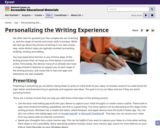
Personalizing the Writing Experience
A person using both a paper notebook and pen alongside a laptop computer
We often take for granted just how complex the act of writing is, and the range of mental and motor skills it involves. While we each go about the process of writing in our own unique way, some distinct steps are typically involved: pre-writing, drafting, revising and editing.
You may experience barriers in any of these steps of the writing process that can keep you from being a successful writer. Fortunately, the devices many of us already own have a range of built-in features to support you at each stage of the writing process, and many free or low-cost apps and extensions are also available.

This class will focus on the craft of writing genre science fiction. Students write and read science fiction and analyze and discuss stories written for the class. For the first eight weeks, readings in contemporary science fiction accompany lectures and formal writing assignments intended to illuminate various aspects of writing craft as well as the particular problems of writing science fiction. The rest of the term is given to roundtable workshops on student's stories.

Long Description:
The Writing Spaces Web Writing Style Guide was created as a crowdsourcing project of Collaborvention 2011: A Computers and Writing Unconference. College writing teachers from around the web joined together to create this guide (see our Contributors list). The advice within it is based on contemporary theories and best practices. While the text was originally written for students in undergraduate writing classes, it can also be a suitable resource for other writers interested in learning more about writing for the web. This document is available as a web text for reading online, a printer-friendly PDF, and an EPUB ereader versions. Visit http://writingspaces.org/wwsg to learn more.
Word Count: 22509
(Note: This resource's metadata has been created automatically by reformatting and/or combining the information that the author initially provided as part of a bulk import process.)
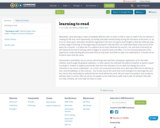
learning to read
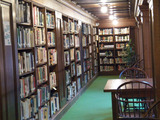
This is a resource for improving reading skills or habits. It is suitable for students or individuals that intends to find out steps for improving reading skills.

A Part of the Military Memoirs Writing Project
Short Description:
The Military
Word Count: 2537
ISBN: 979-8-218-01360-8
(Note: This resource's metadata has been created automatically by reformatting and/or combining the information that the author initially provided as part of a bulk import process.)
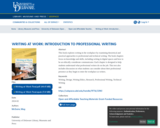
This book explores writing in the workplace by examining theoretical and practical approaches to professional and technical writing. The book chapters focus on knowledge and skills, including writing in digital spaces and how to be an ethically considerate communicator. Each chapter is designed to help students understand what professional writers do on the job. This text also includes discussion on what students can consider about their professional presence as they begin to enter the workplace as writers.
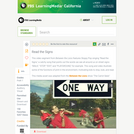
In this video segment from Between the Lions, Sloppy Pop's song Read the Signs spotlights the letters and words we see on signs every day, encouraging children to be aware of print in their environment.
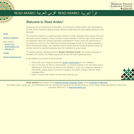
The Read Arabic! Internet lessons were developed at the National Foreign Language Center (NFLC) at the University of Maryland primarily with high school students of Arabic in mind; however, the materials can also be used for those in college at the basic and intermediate level as well. The website assumes knowledge of the Arabic alphabet and how to read. In addition to lessons, the website includes a basic overview of the Arabic language in English, from its history to modern usage, and learning suggestions.
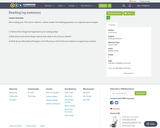
After reading your 'free choice' selection - please answer the following questions on a separate piece of paper. 1) Tell me three things that happened in your reading today? 2) Why did you pick those things? How do they relate to the story as a whole?3) What do you will predict will happen next? Why do you think that? (use evidence to support your answer)
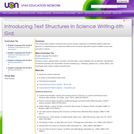
This activity helps students understand that science writing is organized in identifiable patterns called text structures. Understanding and using these different text structures help refine students abilities to both read and write in science.
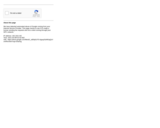
College Reading Syllabus
RD 115 College Reading
Course Description
Focuses on expanding reading frequency and effectively reading complex college level texts; Emphasizes comprehension strategies, critical reading and thinking skills, information literacy, vocabulary development, student success strategies and adapting reading rate to different reading tasks.
Improve reading rate, vocabulary and comprehension. Includes formation of efficient
reading habits, vocabulary development, inferential and critical reading, and adapting
reading rate to different reading tasks.
Course Outcomes
*NOTE THIS COURSE HAS SIX OUTCOMES, MOST OF WHICH HAVE MULTIPLE PARTS. THEY ARE BROKEN DOWN INTO
SMALLER MEASURABLE AREAS BELOW.
1a. Proficiently use stages of reading—previewing, reading, review-and reading strategies in order to
improve comprehension, control concentration, and increase persistence and retention in a variety of
academic and non-academic reading tasks.
1b. Refine connections between text, the student’s life, student’s knowledge of the world, and other texts.
1c. Examine interactions between relationship, richness, structure, style, vocabulary, and purpose within
complex texts.
1d. Increase reading frequency.
1e. Adjust reading rate to the nature of the material.
2a. Advance and broaden use of vocabulary development strategies to learn and use new words including
discipline-specific vocabulary in listening, speaking and writing.
2b. Advance word parts study.
3. Refine written evaluation, analysis, and reflection in response to various texts.
4. Analyze texts in order to:
a. identify and articulate explicit and implied main idea and major details,
b. distinguish fact from opinion
c. determine the author’s and reader’s purpose and bias, and
d. distinguish between literal and figurative meaning in a variety of increasingly complex academic
and non-academic reading materials.
e. Make accurate inferences and rely on information provided in text to substantiate thinking.
4f. Identify and evaluate complex points of view in different texts.
4g. Cultivate flexibility and skepticism about author’s and reader’s perspectives.
5a. Use library resources to formulate a research query
5b. Select appropriate sources of information. Use critical thinking to evaluate increasingly complex and
diverse information and sources for academic and lifelong learning.
5c. Identify and make use of steps in the research process.
6a. Exhibit habits and contribute to academic success, including engagement and intellectual curiosity.
6b. Employ active learning and study strategies for academic success.
6c. Use campus support services and other learning resources to help meet academic goals.
6d. Participate in a classroom learning community in a respective and responsive manner